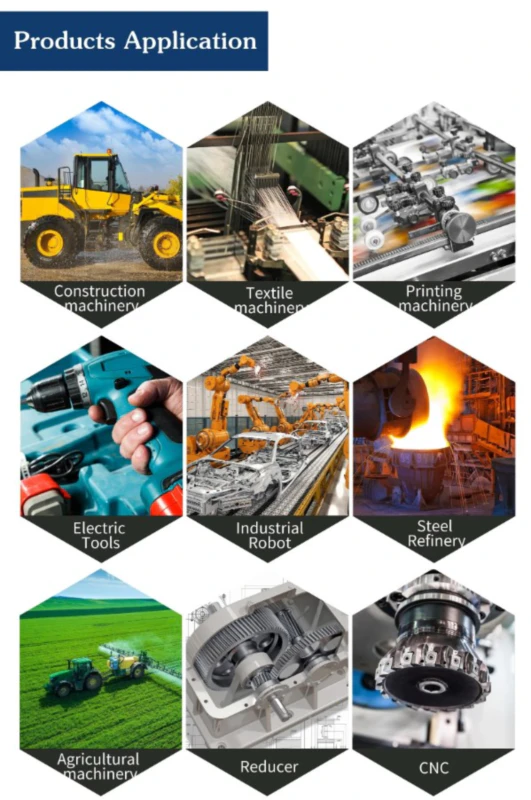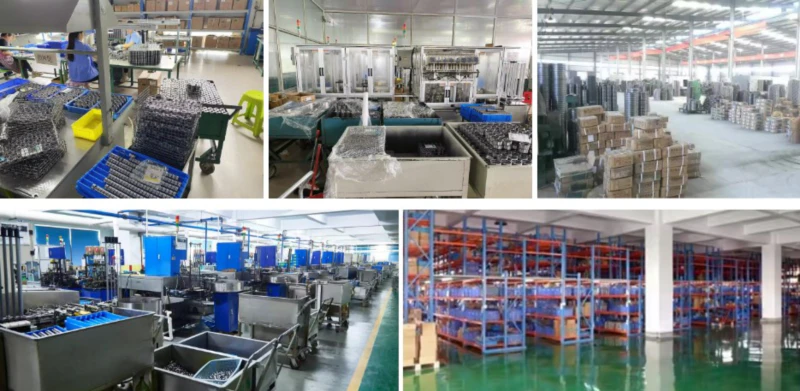Track Bearings Bearing Failure Management Guidelines
Introduction
In this blog article, we will explore the topic of track bearings bearing failure management. Track bearings are crucial components in various industrial applications, and understanding how to effectively manage and prevent bearing failures is essential for optimal performance and longevity. In this comprehensive guide, we will delve into the various aspects of bearing failure management, providing you with valuable insights and strategies to ensure the reliability and efficiency of your track bearings.
Understanding Track Bearings and Common Failure Causes
Track bearings are specialized bearings used in applications where there is a need to support and guide moving parts along a track. These bearings are subjected to significant loads, extreme temperatures, and harsh operating conditions, making them susceptible to various failure modes. By understanding the common causes of bearing failures, you can implement proactive measures to mitigate risks and enhance the overall performance of your track bearings.
1. Insufficient Lubrication
Proper lubrication plays a pivotal role in the smooth operation of track bearings. Insufficient lubrication can lead to increased friction, heat buildup, and premature wear. To prevent bearing failures due to inadequate lubrication, it is essential to follow manufacturer’s recommendations regarding lubricant type, quantity, and application intervals.
2. Contamination and Foreign Particles
Contamination is a major contributor to track bearing failures. Foreign particles, such as dirt, dust, or debris, can infiltrate the bearing assembly and cause abrasive damage to the rolling elements and raceways. Regular cleaning and implementing effective sealing mechanisms can help minimize the risk of contamination-related failures.
3. Overloading and Improper Installation
Excessive loads and incorrect installation practices can put excessive stress on track bearings, leading to premature failures. It is crucial to ensure that the bearings are installed correctly, maintaining proper alignment, clearance, and preload, as specified by the manufacturer. Additionally, avoiding overloading the bearings beyond their rated capacities is essential for preventing premature failures.
4. Inadequate Maintenance Practices
Regular maintenance is vital for identifying early signs of bearing wear or damage. Neglecting routine inspections, lubrication checks, and necessary repairs can accelerate the degradation of track bearings, resulting in unexpected failures. Establishing a comprehensive maintenance schedule and adhering to it diligently can significantly extend the service life of your track bearings.
Preventive Measures for Bearing Failure Management
Implementing proactive measures can significantly improve the reliability and longevity of track bearings. By incorporating the following preventive measures into your maintenance routine, you can minimize the risk of bearing failures and optimize the performance of your equipment.
1. Regular Lubrication and Monitoring
Ensure regular lubrication of track bearings using the appropriate lubricant type and quantity. Regularly monitor lubricant levels and quality to prevent issues related to insufficient or degraded lubrication. Implement condition monitoring techniques, such as vibration analysis or temperature monitoring, to detect any anomalies that may indicate lubrication issues.
2. Effective Sealing and Contamination Control
Utilize suitable sealing mechanisms to prevent the ingress of contaminants into the bearing assembly. Implement proper cleaning procedures to remove any accumulated particles or debris that may compromise the integrity of the bearings. Consider using protective covers or shields to provide an additional layer of defense against external contaminants.
3. Proper Installation and Alignment
Ensure proper installation of track bearings by following the manufacturer’s guidelines. Precise alignment, appropriate clearance, and correct preload are essential for optimal bearing performance. Utilize specialized tools and equipment to achieve accurate installation and alignment, minimizing the risk of premature failures caused by installation errors.
4. Regular Inspections and Maintenance
Establish a comprehensive maintenance schedule that includes regular inspections, lubrication checks, and necessary repairs. Monitor bearing condition through techniques such as visual inspections, wear pattern analysis, or ultrasonic testing. Promptly address any identified issues to prevent further damage and ensure the reliable operation of track bearings.
Conclusion
In conclusion, effective track bearings bearing failure management is crucial for maintaining optimal performance and minimizing operational downtime. By understanding the common causes of bearing failures and implementing preventive measures, you can significantly extend the service life of your track bearings, ensuring reliable and efficient operation. Regular maintenance, proper lubrication, contamination control, and correct installation practices are key factors in mitigating the risk of bearing failures. By prioritizing these guidelines, you can enhance your track bearing’s reliability and overall equipment performance.
Author: Czh
Company Introduction:
Our company is a leading player in the Chinese reducer market, specializing in the production of servo reducers, plastic gearboxes, gear motors, worm gearboxes, worm wheels, worm reducers, and more. With state-of-the-art automated CNC production and assembly equipment, we ensure the highest quality standards for our products. We take pride in offering competitive prices and excellent customer service. Customization based on customer requirements is our specialty. Contact us today to experience our premium products, affordable prices, and attentive service.


